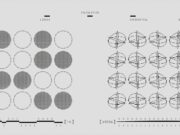A bank reference is an official statement from your bank that attests to your financial credibility. It is commonly used when you are applying for a loan, renting a property, or conducting business transactions. Understanding what a bank reference is and how it works can help you navigate various financial processes with ease.
Understanding Bank Reference and Its Purpose
Why Do You Need a Bank Reference?
A bank reference serves as proof of your financial responsibility. It provides third parties, such as lenders, landlords, or business partners, with assurance of your creditworthiness. Essentially, the reference confirms that you manage your accounts well and have a good relationship with your bank.
For example, when applying for a loan, a bank reference is often requested to verify that you can manage debt responsibly. Similarly, landlords often request bank references to confirm that tenants have the financial means to pay rent consistently.
How Bank References Demonstrate Financial Stability
The reference is not just a formality. It plays a key role in demonstrating your financial stability. A solid bank reference shows that you have maintained a stable bank account for a certain period and have a history of responsible transactions. This makes it easier for financial institutions to assess your creditworthiness and decide whether to extend credit or approve loans.
A bank reference often includes information such as the length of your banking relationship, your average account balance, and whether you have any overdrafts or bounced checks in your history. These details provide a comprehensive view of your financial behavior.
How to Get a Bank Reference
Steps for Requesting a Bank Reference Letter
Requesting a bank reference letter is straightforward. Here’s what you need to do:
- Contact Your Bank: Reach out to your bank, either by phone, email, or in person. Most banks have a specific process for issuing bank references.
- Provide Necessary Information: The bank will likely ask for your account details and may need permission to release certain information. Be prepared to provide this information.
- Specify the Purpose: Let your bank know why you need the reference, as they may tailor the letter to meet specific requirements, such as for a loan or rental application.
- Request the Letter: Once all information is provided, ask for the letter. Some banks may charge a small fee for this service.
Bank Reference Requirements for Different Purposes
Bank reference requirements vary depending on the purpose for which they are requested. For example, when applying for a loan, a bank reference may include details about your credit history, while for a rental agreement, landlords might only want a confirmation of your account balance and payment history.
In general, the requirements include:
- The length of your banking relationship
- Your account balance history
- A statement regarding your financial behavior (overdrafts, late payments, etc.)
Bank Reference for Loan Application
How a Bank Reference Helps in Credit Approval
A bank reference is an important document in the loan approval process. Lenders use it to assess your ability to repay loans. By providing a bank reference, you show them that you are financially stable and capable of managing debt.
The reference letter may include:
- Verification of your bank account history
- Your average monthly balance
- A summary of your financial habits, such as the absence of overdrafts
This information gives lenders confidence in your creditworthiness and helps them decide whether to approve your loan application.
Bank Reference vs. Bank Statement: What’s the Difference?
Many people confuse a bank reference with a bank statement, but they are not the same. A bank statement is a detailed summary of your account activity over a specific period, typically monthly. It includes deposits, withdrawals, fees, and the account balance.
On the other hand, a bank reference is a letter issued by the bank, which provides a more formal and general assessment of your financial standing. The bank reference doesn’t include transaction details like a bank statement but instead gives an overview of your account’s health and your history with the bank.
| Feature | Bank Reference | Bank Statement |
| Purpose | Confirm financial credibility | Show detailed account transactions |
| Content | Brief overview of account behavior | Detailed list of deposits/withdrawals |
| Issued By | The bank (written confirmation) | Account holder (monthly summary) |
| Use Case | Loan, rental, or business applications | Tracking personal or business finances |
Using Bank References for Rentals
Why Landlords Request Bank References
Landlords frequently ask for bank references as part of the rental application process. It helps them evaluate whether a potential tenant is financially stable and capable of paying rent regularly. A bank reference provides evidence that the applicant has enough funds in their account to cover monthly rent and that they have a history of managing their finances well.
Having a strong bank reference can make your rental application stand out. It shows landlords that you are financially responsible and less likely to default on payments.
How a Bank Reference Impacts Your Rental Application
A bank reference can significantly impact your rental application. If you have a solid financial history, it gives landlords the confidence to approve your application. In contrast, if your bank reference shows poor financial habits or low account balances, landlords might hesitate to offer you the lease.
To increase your chances of approval, ensure that your bank reference highlights a positive financial history with no overdrafts or bounced checks.
Verifying and Understanding Bank References
What Does a Bank Reference Show About You?
A bank reference offers insight into your financial behavior and stability. It shows the bank’s assessment of your account, your average balance, and how responsibly you manage your finances. For instance, it may indicate that you are a reliable customer who maintains a steady balance or a high-risk customer who frequently overdrafts.
How Banks Verify References for Loans and Credit
Banks often verify bank references as part of their loan approval process. They contact the bank issuing the reference letter to confirm the accuracy of the information provided. The bank may inquire about your account balance, your transaction history, and whether there are any signs of financial instability.
Bank Reference Letter Format and Sample
What Should Be Included in a Bank Reference Letter?
A typical bank reference letter includes:
- The account holder’s name and details
- The length of the banking relationship
- The average account balance and financial behavior (if applicable)
- A statement confirming that the account holder manages the account responsibly
Here’s a sample outline for a bank reference letter:
- Date
- Bank’s Name
- Account Holder’s Name
- Account Number (may be omitted for privacy)
- Confirmation of Account Details
- Length of Relationship
- Financial Summary
- Signature
How to Write a Proper Bank Reference Letter
If you need to write a bank reference letter, ensure it is clear and professional. Be specific about your account details, but keep personal information secure. The letter should be formal and signed by an authorized bank representative.
Conclusion: Importance of Bank References in Business and Personal Life
A bank reference is more than just a formality – it’s a key tool that helps you prove your financial stability in various scenarios, whether you’re applying for a loan, renting a property, or starting a business. By understanding the process of obtaining and using a bank reference, you can make informed financial decisions and improve your chances of success in business and personal financial matters.
Frequently Asked Questions
- What is the difference between a bank reference and a bank statement?
A bank reference is an official letter from the bank that confirms your financial standing, while a bank statement is a detailed account of your transactions over a specific period. A bank reference is used to show creditworthiness, while a bank statement tracks account activity. - How long does it take to get a bank reference?
The time it takes to receive a bank reference varies by bank. Typically, it can take anywhere from a few days to a week. Make sure to request it well in advance if you need it for a specific purpose. - Can a bank reference help me get a loan?
Yes, a bank reference is often used by lenders to assess your creditworthiness. It provides them with a summary of your banking history, helping them decide whether to approve your loan application.
4. How does a bank reference impact my rental application?
A bank reference can significantly strengthen your rental application. It shows landlords that you have the financial stability to pay rent consistently, making you a more attractive tenant.























